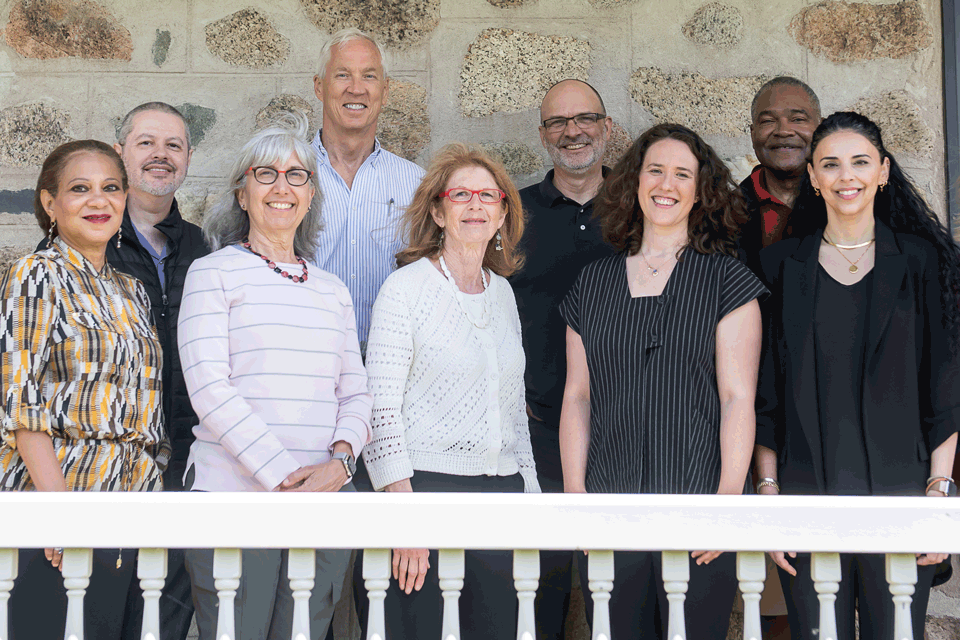Career Advancement and Culture Change in Biomedical Research: Group Peer Mentoring Outcomes and Mechanisms
Study Description
The C-Change study will contribute to the science of mentoring and the flourishing of medical school faculty, and address the need for a more diverse biomedical and biobehavioral research workforce and leadership. Optimally vital faculty and diversity in the research workforce are essential to mobilize the full spectrum of skills and perspectives necessary for solving complex 21st-century health care challenges. Although large cohorts of underrepresented minority and female faculty members have completed MD and PhD training, recent studies reveal their lack of career advancement and leadership roles, and their significant attrition from academic biomedical research careers. Additionally, over 40% of medical school faculty report burnout and retention rates in first-time NIH R01 awardees average only about 60% five years later.
This culture change study proposes that group peer mentoring conducted in a humanistic, inspiring, reflective and relational environment has great potential for enhancing fulfillment, well-being and career success among medical scientists, including underrepresented group members and women. The study will implement a culture change intervention consisting of a novel yearlong group peer mentoring intervention for mid-career physician-scientists and PhD scientists engaged in biomedical research in U.S. medical schools and teaching hospitals.
Goals of the mentoring intervention are increased faculty vitality and career advancement, enhanced cultural awareness and appreciation of difference and diversity, use of effective mentoring practices and achievement of personal goals. Both well-represented in medicine and underrepresented minority faculty will experience the benefits of working and learning in a diverse group of peers and will be poised for leadership and career advancement. This randomized controlled study will test the efficacy of the group peer mentoring model. A second study objective is to understand the mechanisms by which the culture change mentoring model achieves its goals.
The C-Change research team purposefully has an interdisciplinary and multiracial membership of women and men. Participants in the intervention and external control group will be balanced by gender and race/ethnicity. Efficacy assessment and the study of mechanisms of action will be assessed using a combination of quantitative and qualitative research methods.
Project Impact
C-Change's rigorous scientific approach to examine a successful mentoring and leadership intervention training will contribute to the science of mentoring; be a basis for broad dissemination of the specific intervention methods and mechanisms; and be generalizable to different institutions and career stages. The proposed evidence-based mentoring model provides a community of learning with peers and eliminates the frequently encountered pitfalls of traditional mentoring models and their variable success. As faculty participants return to their own academic health centers and apply practices learned in the intervention, the specific factors that contribute to successful outcomes will be disseminated across a wide variety of institutions in the U.S
Project Team
Linda Pololi, MD,
Principal Investigator, Brandeis University
Robert Brennan, EdD
Co-investigator, Brandeis University
Mark Brimhall-Vargas, PhD
Co-investigator, Fenway Health
Jan Civian, EdD
Research Data Manager, Brandeis University
Lisa Cooper, MD, MPH
Co-investigator, Johns Hopkins University, School of Medicine
Arthur Evans, MD, MPH
Co-investigator, Weill Cornell College of Medicine
Kimberly Bloom-Feshbach, MD
Co-investigator, Weill Cornell College of Medicine
Brian Gibbs, PhD
Co-investigator, UMass Memorial Health Care
Lance Laird, ThD
Co-investigator, Boston University School of Medicine
Vasilia Vasiliou, PhD
Research Associate, Clark University

Project Team NIH Study, June 2021